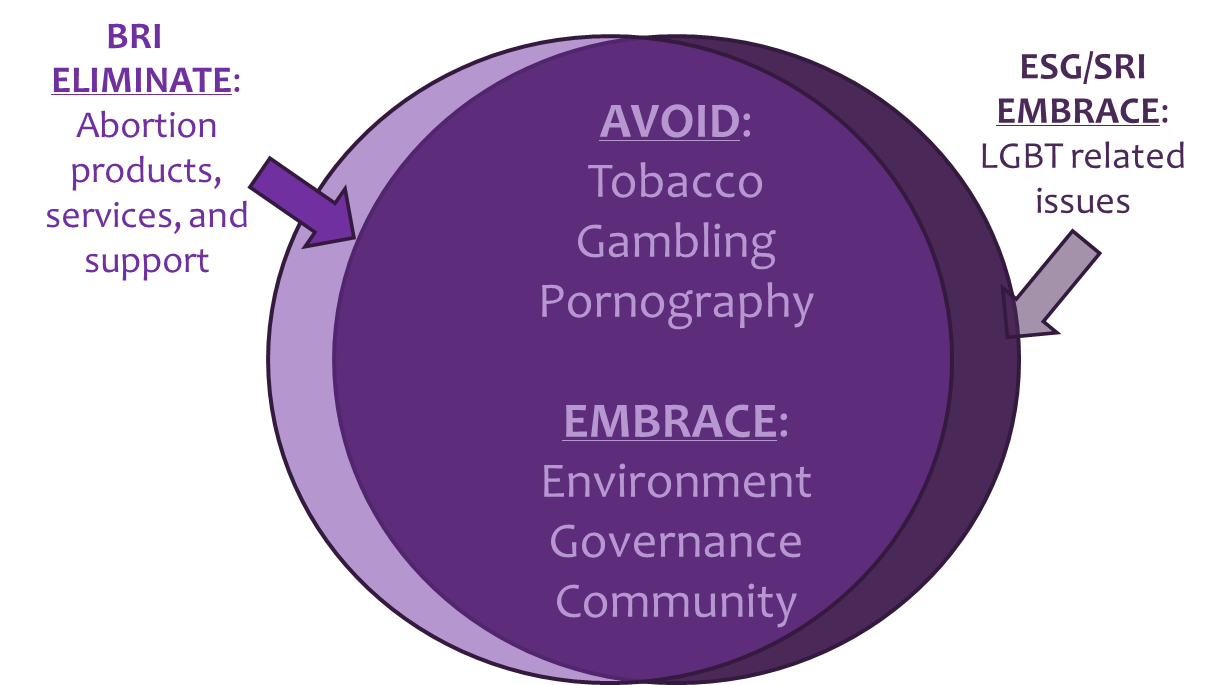We've talked many times through blogs and social media about the importance for Christians to care about what they're invested in. Even if you're not a Christian, you can still care about what you're invested in and have a desire to invest in companies that strive to make the world a better (instead of worse) place. For the second blog in the series: The Birth of Biblically Responsible Investing, we're going to be focusing on the origins of BRI and Bible verses that tie into the reasoning behind BRI.

From the very beginning, God has given us a blueprint to how we should be living our life, including how to handle the resources we've been given. Beyond that, we're told in Genesis 1-3 about how God created everything and that humans are beloved by God; therefore, we should be avoiding ventures that are destructive towards people – God's loved creation. Throughout Scripture, we're reminded how God own's EVERYTHING (see Deuteronomy 10:14 for one example). When we change our perspective on life and recognize that we're a steward of the resources instead of the owner, it becomes easier to be obedient to God's commands.
Here are some key verses reminding us that our security isn't in our worldly resources, instead our security lies in our relationship with God.
"You shall remember the LORD your God, for it is he who gives you power to get wealth, that he may confirm his covenant that he swore to your fathers, as it is this day." - Deuteronomy 8:18
"And my God will supply every need of yours according to his riches in glory in Christ Jesus." - Philippians 4:19
We're also given warnings about how we accumulate wealth:
"Better is a little with righteousness than great revenues with injustice." - Proverbs 16:8
"For what will it profit a man if he gains the whole world and forfeits his soul? Or what shall a man give in return for his soul?" - Matthew 16:26
History of BRI
While Biblically Responsible Investing wasn't a well-known concept until more recently, we can see throughout history different Christians following the ideologies for biblically responsible economic activities. Here are a few key figures:
- Martin Luther in 1524 excoriated businessmen who left out ethics.
- John Wesley (1700s), the founder of the Methodist movement, influenced his followers to avoid profiting from things that would negatively impact their neighbors which included alcohol, tobacco, weapons, and gambling. While not the exact same, it is very similar to what we see in the avoid mandate of BRI today.
- John Woolman, an English-born New Jersey tailor in the 1700s, refused to buy cotton or dye handled by slaves. This led to further actions regarding slave trade and eventually the Abolitionist Movement which led to the Civil War after Woolman's death.
- In 1928, Philip Carret launched the Fidelity Mutual Trust, one of the first ever mutual funds. This mutual fund was initially made to serve church investors and it essentially screened out investments which were involved in alcohol or tobacco.
- In 1976, Christian Financial Concepts (CFC) was founded by Larry Burkett. They teach people biblical financial management similarly to Dave Ramsey.
These are just some of the examples of biblically responsible economic activities we've seen before BRI became more known.
Don't confuse BRI with SRI
A lot of times Biblically Responsible Investing is tied with Socially Responsible Investing (SRI). While there are some similarities in the sense that both have screening criteria, they both have different types of screens. SRI generally focuses on environmental stewardship, consumer protection, human rights, and diversity. BRI tends to have stricter screening criteria which focuses on things in the Bible – avoiding things that the Bible is against and promoting companies that care about making the world a better place. Below is a Venn diagram we use to show some of the differences between BRI and SRI.

Next month, we're going to be looking at Art Ally's story and what led him to BRI.




